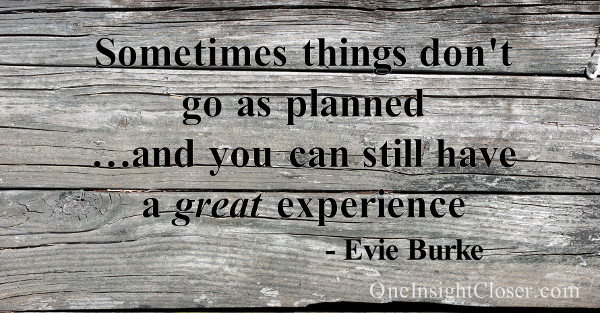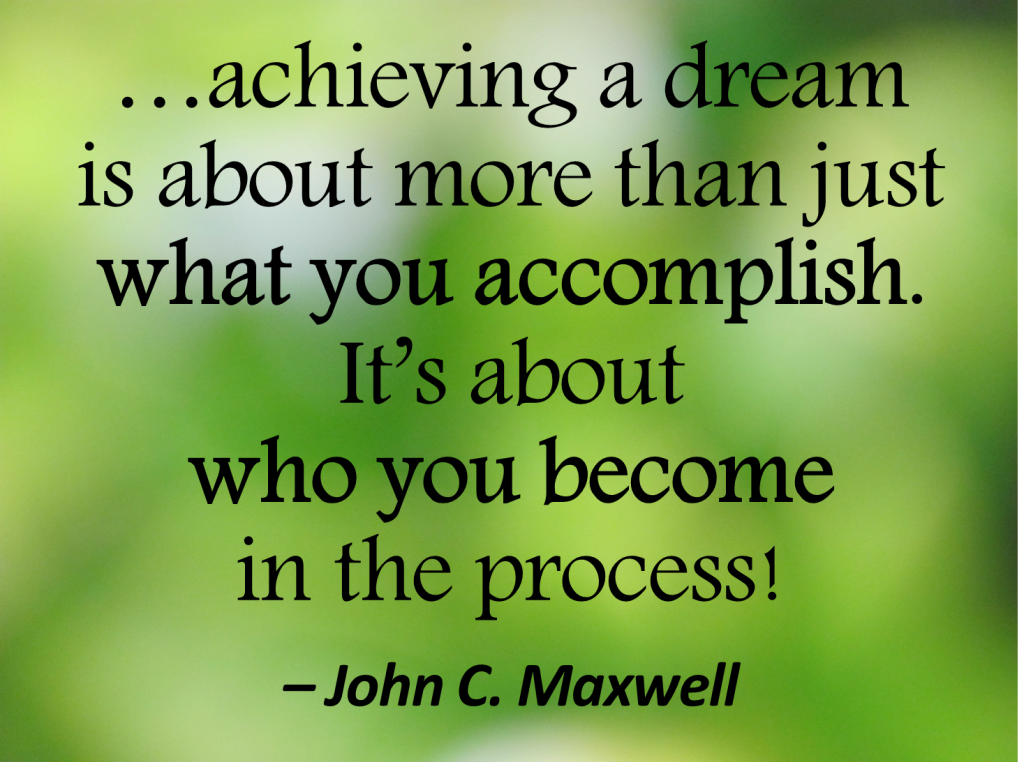 Have you ever wanted to fully experience something, but for whatever reason, not been able to experience it in the way you pictured it?
Have you ever wanted to fully experience something, but for whatever reason, not been able to experience it in the way you pictured it?
Last year at this time I wanted to be in Asheville, North Carolina, with everyone else in the program I had just joined. It was the first retreat for most of us – the energy and excitement was high.
And I chose not to go.
I could say I couldn’t go, but it was a choice I made. I chose to stay home and honor other commitments.
And I really felt like I was missing out on an important experience.
I really wanted that experience and one of my intentions for the program was to be engaged and participate. This showed up in different ways – participating on the forum, listening to the training calls and being on every Q&A call I could be on, even when I didn’t have a question.
So, I looked for other ways I could still be engaged and participate in the retreat. Thus, the Google Hangout idea was born – I’d have my own version of the retreat at home!
The videos and exercises for the retreat were posted a week or two later and I reached out to the group looking for other people who couldn’t attend and wanted to do it virtually with me.
We watched the videos on our own, did the exercises and then came together for about two hours each for two days. A total of four people participated, three people each day.
It was great! We all received some great feedback on the exercises and were able to provide feedback for others.
What’s my point?
Sometimes things don’t go as planned. You can’t go to the event, the goal isn’t met or priorities change.
And you can still have a great experience.
Think back to the last time something didn’t go the way you wanted it to.
- What was your intention?
If you didn’t have one, what were you hoping for? What would reaching that goal have meant to you? - How can you honor that intention? How can you still experience that?
What can you do, even small toward that? (Small wins are still wins!) And what can you change or modify going forward based on this experience? - Do it!
So many times we think about the small things we could do for ourselves, but don’t in favor of other “important” tasks. I encourage you to take some time out of you day or week to honor yourself and your intention. Just because something doesn’t happen the way you thought it would, doesn’t mean you can’t experience it another way.
How do might you apply this? Share in the comments below!









